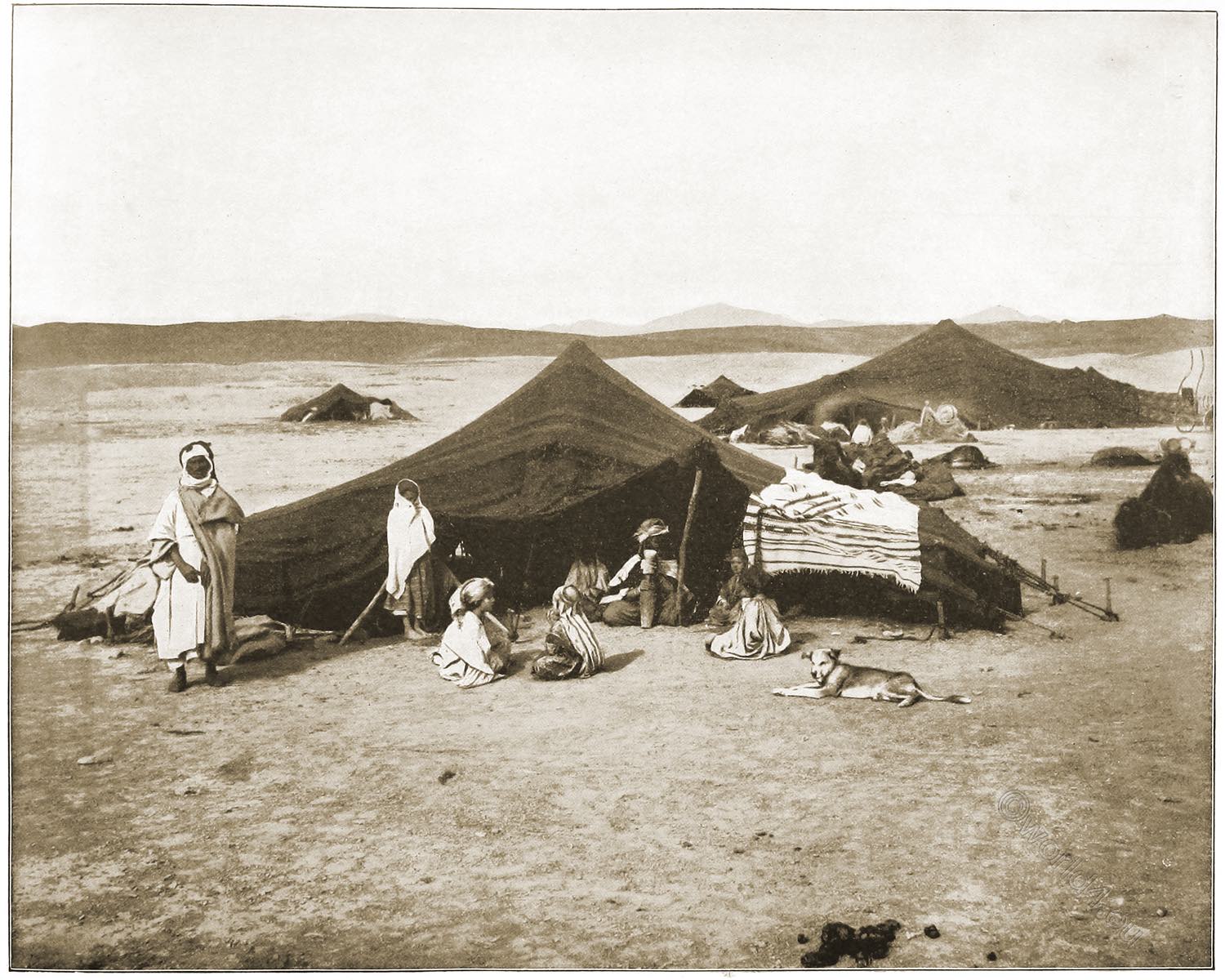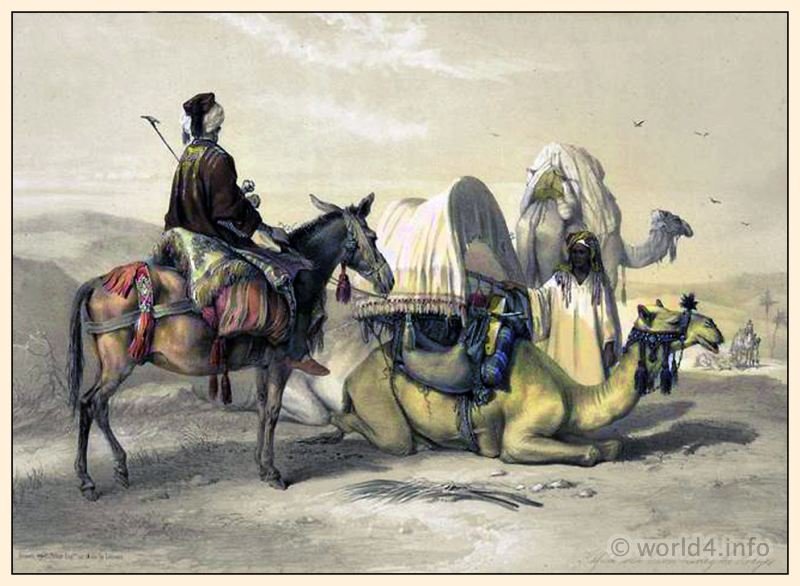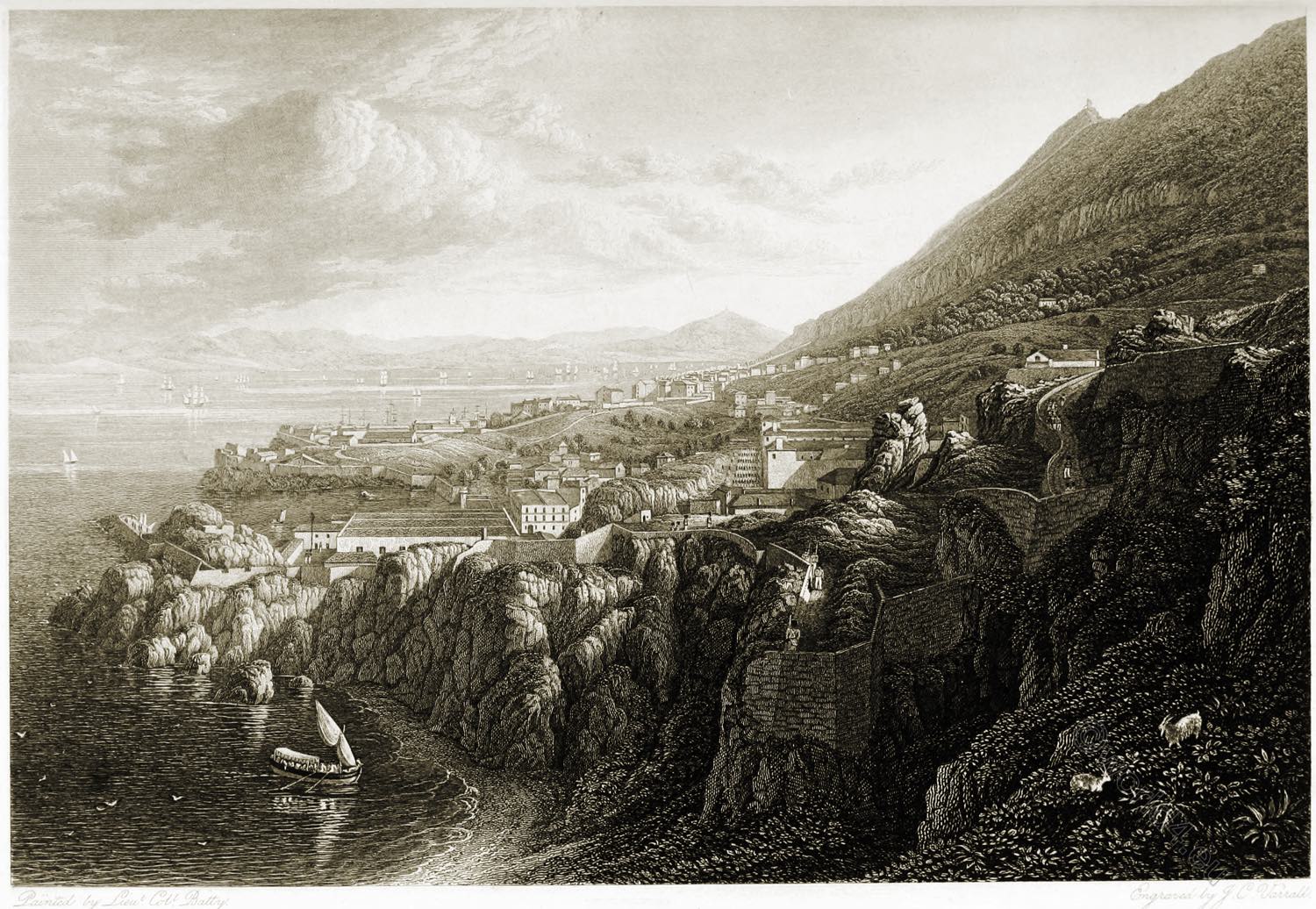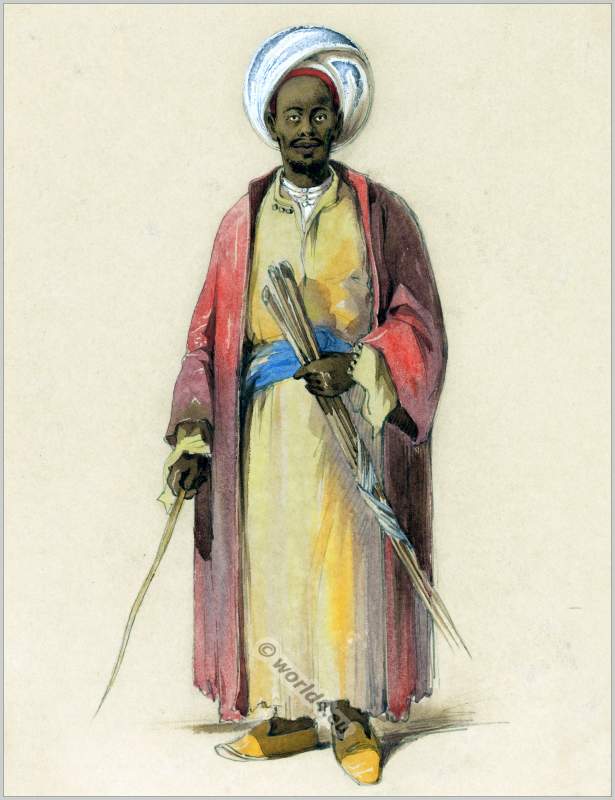
CAMP OF A CARAVAN ON THE SAHARA DESERT.
Few travellers in the east venture out upon the Desert, and yet it is neither difficult nor dangerous to do so within a reasonable distance of either Algeria, Egypt or Palestine. In any case the experience is unique and can never be forgotten.
You are there at once transported back to the days of the Patriarchs. You are a nomad, a Bedouin, a voyager on a petrified ocean which with its rolling waves of sand seems to have been suddenly changed from a state of activity to one of eternal rest. By day a journey on the desert means a perpetual struggle with the sun, whose heat reflected from the yellow sand seems almost unendurable. But at night the fascination of the desert’s silence, solitude and awful sense of isolation ‘neath the sparkling stars is something which can hardly be imagined until actually experienced. A veritable ocean the mighty desert is. It has the same succession of limitless horizons, the same dreary monotony.
Caravans glide over its surface like gigantic fleets. When a party of Bedouin once came to the Mediterranean, they inquired, “What is this desert of water?” There is a wonderful amount of romance about the desert, which explains the charm which it possesses for the sons of Ishmael. The colours of its drifts of sand are glorious in the glow of morning and of evening. Its wonderful mirage presents to view from time to time such regions of delight as may have suggested to the Prophet his vision of the Moslem’s Paradise.
While ever and anon this tremulous horizon-picture becomes a reality, and we behold the beautiful, mysterious oasis, a place of palms and fountains, a miracle renewed continually and justifying the exclamation of the grateful Arab, “God is great! God is merciful!”
Source: Glimpses of the world; a portfolio of photographs of the marvellous works of God and man by John Lawson Stoddard (1850-1931). Chicago, R.S. Peale, 1892.
Continuing
Discover more from World4 Costume Culture History
Subscribe to get the latest posts sent to your email.






